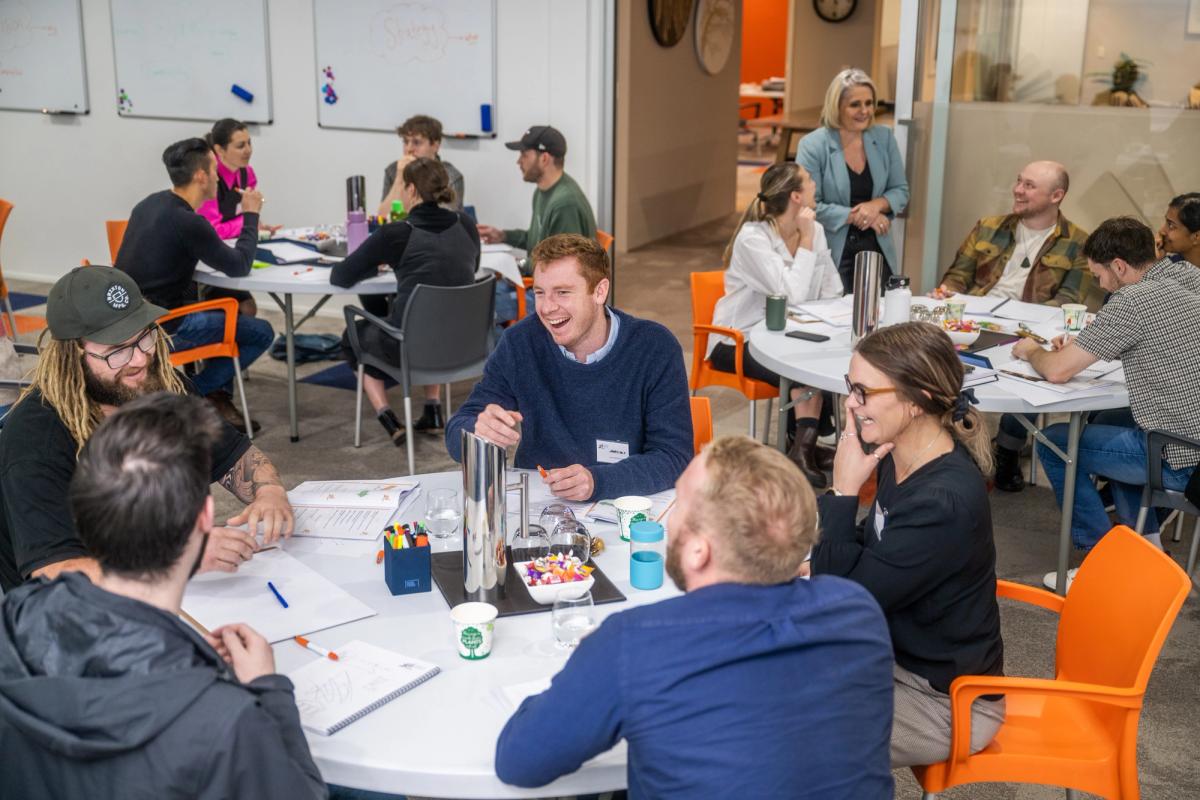Cohort-based learning, trending now
Cohort-based learning, trending now
Well to qualify - it’s trending among online course designers, not fashionista influencers with millions of followers. But trends can be useful, especially if you have a limited training budget, and you are paying for professional development, you want to know what works. Current evidence shows that participants in cohort-based learning demonstrate better retention of information. Forbes reports that cohort-based courses demonstrate better completion rates over online self-paced learning. At NZIM we find that cohort-based learning builds a culture of connection and application of learning in the workplace.
So what is cohort-based learning?
A cohort is a “group of people who have something in common, shared characteristics or experiences for a designated period of time”.
Cohort-based learning is when a group of people with similar learning goals, go through a structured programme together across a specific period of time. So far, nothing new to see here. That could be any classroom or formal training environment.
So how is cohort-based learning different?
Being in a cohort alone is not enough to make change; being in a facilitated group, which prizes experience, challenge and exploration is what makes the difference. Being together over time means that shared experiences and discussion helps us to gain insights from others, makes it safe to experiment with change and report back to others, these features lead to success.
We have found the following two pillars are essential for successful cohort-based learning social connection with others, and active learning during and beyond the programme of learning.
Social Connection
- Typically, a cohort in learning is a closed group, facilitators attend to psychological safety of individuals in the group, foster connections and enable a supportive and collaborative environment. Worked well, participants feel safe to challenge, to ask the ‘dumb’ questions and to test their ideas.
- Effective social connection builds a powerful learning community, participants build trust and have shared experiences, it is these experiences that bind a group together long after the programme is finished.
Active Learning across time
- Learning on a course or workshop is great, but we add value when people apply their learning. Being in a cohort over time gives people time to experiment with ideas, return to the group, debrief, share successes and challenges, and build their own platform for future change.
- Getting used to peer learning encourages professional conversations and peer-to-peer coaching, invaluable as an ongoing workplace practice.
- These conversations ensure that participants get used to being accountable for their learning, they develop accountability partners for future goal setting.
- The sum total of these experiences builds networks that go beyond the programme of learning.
We can transfer cohort-based learning into everyday work:
By focussing on the two pillars of cohort-based learning, social connection and active learning. Rather than talking about what we know already, become curious about what we have yet to learn or improve.
Social Connection
- We are time poor, but learning and social connection does not need to take a lot of time. Short coffee sessions work well. Create a routine and keep the momentum going.
- Build in buddy systems, which may be in person or online.
Active Learning
- In a perfect world people will set their learning goals, or work with important challenges. But often that feels too demanding in a busy world, and people use that as an excuse to put off learning conversations. If you do not have time to plan ahead then take your learning materials, any learning materials, open at any page, read a paragraph or two and use that as a stimulus for a conversation and further exploration.
- In pairs or small groups share best or effective practice in your work for example:
- “When faced with (the problem or issue) I do (actions, solutions, avoidance, procrastination)”
- Explore the conversation that follows.
We encourage readers to create cohorts in your workplace, seek the benefits of working together for a designated period of time focussed on new learning and new challenges. When I think about cohort-based learning I am reminded of the African Proverb,
“If you want to go fast go alone, if you want to go far, go together”
At NZIM we specialise in programme design and delivery that is face-to-face, experiential and facilitated learning. Our cohort-based learning programmes are a core part of our work, for Emerging Leaders Scholarship and Bespoke In-Company programmes, designed and delivered to the needs of specific workplaces. Our completion rates are high, but more importantly application of learning, activating peer-to-peer coaching in the workplace and building networks and connections continues as an important part of our participants leadership practices.
For more information about the Emerging Leaders Scholarship contact suzanne@nzim.co.nz.
For Bespoke In-Company course enquiries contact therese@nzim.co.nz.
